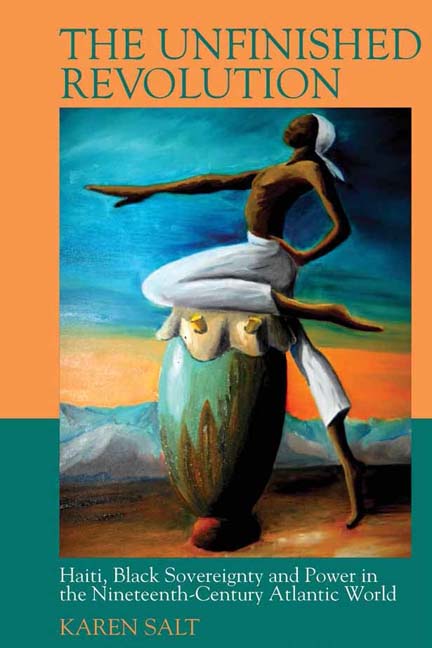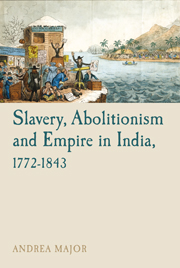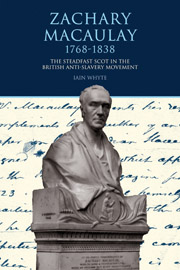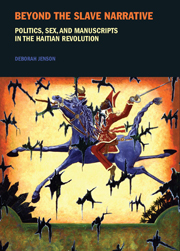8 results in Liverpool Studies in International Slavery

Inside the Invisible
- Memorialising Slavery and Freedom in the Life and Works of Lubaina Himid
-
- Published by:
- Liverpool University Press
- Published online:
- 16 July 2020
- Print publication:
- 19 November 2019
-
- Book
- Export citation

The Unfinished Revolution
- Haiti, Black Sovereignty and Power in the Nineteenth-Century Atlantic World
-
- Published by:
- Liverpool University Press
- Published online:
- 11 July 2020
- Print publication:
- 04 February 2019
-
- Book
- Export citation

Envoys of Abolition
- British Naval Officers and the Campaign Against the Slave Trade in West Africa
-
- Published by:
- Liverpool University Press
- Published online:
- 10 July 2020
- Print publication:
- 19 November 2019
-
- Book
- Export citation

Slaves to Sweetness
- British and Caribbean Literatures of Sugar
-
- Published by:
- Liverpool University Press
- Published online:
- 05 June 2015
- Print publication:
- 01 March 2009
-
- Book
- Export citation

Fathers, Daughters, and Slaves
- Women Writers and French Colonial Slavery
-
- Published by:
- Liverpool University Press
- Published online:
- 05 April 2013
- Print publication:
- 17 October 2012
-
- Book
- Export citation

Slavery, Abolitionism and Empire in India, 1772–1843
-
- Published by:
- Liverpool University Press
- Published online:
- 05 August 2012
- Print publication:
- 29 February 2012
-
- Book
- Export citation

Zachary Macaulay 1768-1838
- The Steadfast Scot in the British Anti-Slavery Movement
-
- Published by:
- Liverpool University Press
- Published online:
- 05 June 2012
- Print publication:
- 30 September 2011
-
- Book
- Export citation

Beyond the Slave Narrative
- Politics, Sex, and Manuscripts in the Haitian Revolution
-
- Published by:
- Liverpool University Press
- Published online:
- 05 December 2011
- Print publication:
- 08 February 2011
-
- Book
- Export citation

